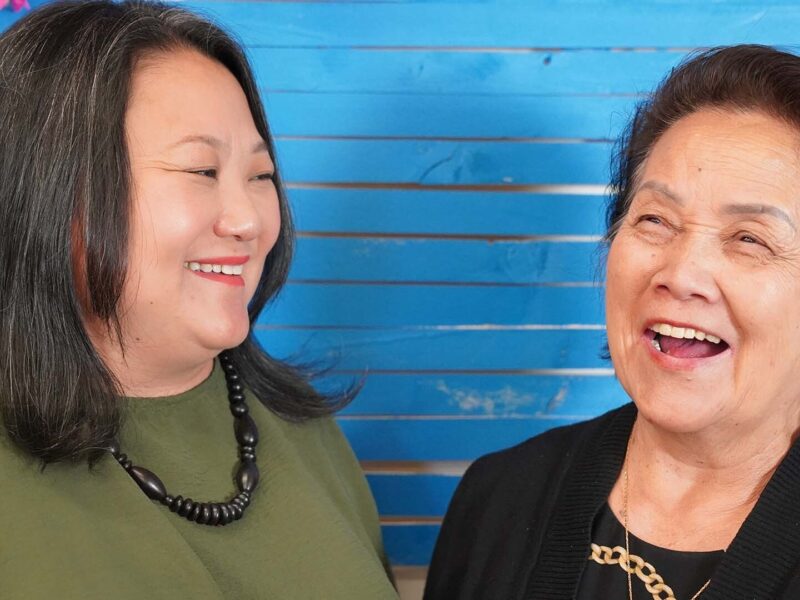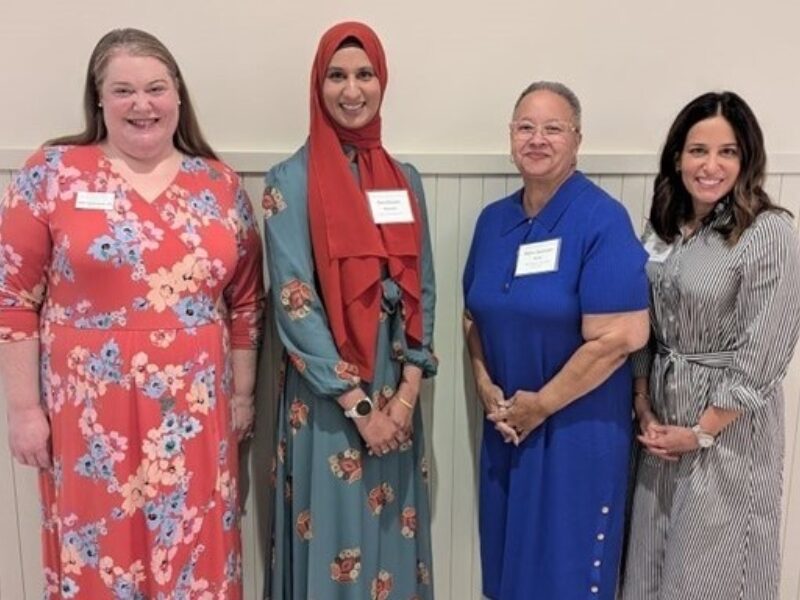Legacy letters provide a peek at the past and a direction for the future.
What Is a Legacy Letter?
A legacy letter is a written document that can be used to pass along life lessons to surviving family members after death. It is sometimes called an ethical will, but a legacy letter is not a legal document.
These documents take many forms — handwritten letter, book or even video — and are often a combination of memoir and directive. In many cases, they articulate the values and charitable wishes of the family. Legacy letters can be shared with loved ones before or after death.
Why Use a Legacy Letter to Talk to Your Family About Giving?
The process of writing a legacy letter raises some provocative questions like: What are your core values? What personal experiences have inspired you to consider charitable giving? What do you wish for future generations? Answering these questions helps family members understand each other better.
Shannon Gahagan, Family Philanthropy Manager at the Saint Paul & Minnesota Foundation, says, “The process can provide intimate sharing moments, where you understand the family members’ passions and beliefs. And these discussions often naturally connect to the issues and organizations that people want to support in the future.”
Although a legacy letter may never become a formal written document, the idea is to get you and your loved ones talking about your values.
Beth McCray, former nonprofit strategies manager at the Saint Paul & Minnesota Foundation, says, “Kids don’t know the details about their parents’ assets, but if they understand what their parents value, that’s a lifelong lesson.”
Hear answers to common questions about what a legacy letter is and its purpose in passing on your values and insights to future generations in the video below.

Life Lessons and Inspiring Generosity
A legacy letter also provides a way to talk to family members about money — a topic many people find uncomfortable. Shannon says, “These conversations can transform a discussion about finances into a meaningful personal history. People share themselves in ways they never have before. They allow themselves to be vulnerable.”
For most people, a physical letter isn’t as important as the exercise of clarifying shared beliefs in person. The process helps spell out the people, organizations, communities and issues that a family values and will support.
Beth has seen these conversations deepen family relationships. “The stories that come out are retold later,” she says. “The family treasures them, and they inspire generosity in a different way when people understand the ‘why’ behind a gift.”
Four Considerations When Writing a Legacy Letter
Not sure what to say to family and friends when starting to write your letter? Here are four things you may want to include in your legacy letter.
Who you are writing the letter to: The letter can be addressed to specific people, such as a grandchild, daughter or best friend; or the letter could be to your family in general. You could write multiple letters for different loved ones.
Gratitude: It’s a great idea to include what you appreciate about your loved ones. Expressing thanks and gratefulness for people, memories and experiences can be a meaningful part of a legacy letter.
What matters to you most: Write down your values, what you care about most and what you want people to remember about you.
Future: Consider what you want your family’s future to look like and what you wish for them. Do you have plans for what you would like them to do with any assets? Are there any specific organizations you want them to to continue supporting long after your lifetime?
Clarifying Values to Guide Giving
Whether you are considering how to support organizations you value or simply offering insights to people you love, why wouldn’t you want the chance to pen a few last sentences in the story of your life?
The Saint Paul & Minnesota Foundation offers a donor toolkit for families who are ready to discuss their legacy with family and loved ones. Contact your Philanthropic Advisor to get started with the toolkit.
“These conversations can transform a discussion about finances into a meaningful personal history. People share themselves in ways they never have before.”
Shannon Gahagan, Family Philanthropy Manager

Resources to Learn More about Legacy Letters
New York Times writer Constance Gustke provides some historical context on legacy letters in “The Ethical Will, an Ancient Concept Is Revamped for the Tech Age.” The article references the book So Grows the Tree — Creating an Ethical Will by Jo Kline Cebuhar as a resource.
Legacy Letters, Passing on Values, Not Just Valuables is a fairly comprehensive online resource that describes a variety of legacy letter projects and how these letters impacted the people who created them. It is also include legacy letter samples and examples of how the letters were used.
This article was originally published on Feb. 11, 2020, updated on Aug. 30, 2022 and updated again on Aug. 23, 2024.
By Chris Garner, Communications Specialist. As communications specialist, Chris supports the Saint Paul & Minnesota Foundation’s work by showcasing it to the community through words, photo, video and other media. Chris has a Bachelor of Arts in Communications from Alabama State University and a Master of Science in Journalism from the Northwestern University.









